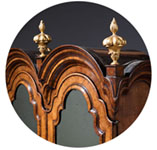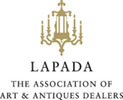17th Century William and Mary Kingwood Strongbox, with Gilt Brass
SOLD
Request Information
Follow Us
17th Century William and Mary Kingwood Strongbox, with Gilt Brass
A 17th century William and Mary Kingwood strongbox, with gilt brass straps. This strongbox has to be one of the most charming and certainly the smallest example we have encountered, at just 17.5 cm high, 28 cm wide and 18 cm deep. A strongbox of similar merit form and style resides at Burghley House in ‘The 1st George State Room.
The box appears decorative, but it was also very difficult to break open or steal. It has a strong lock to the centre and two bolts concealed in the sides, so that it could be screwed down into floorboards if necessary or that of a horse-drawn carriage. Strong-boxes veneered in oysters of Princewood such as this were luxury objects.
The Cabinet-makers who would have constructed and veneered the carcase apparently sold them, often using tropical hardwood veneers, and mounted it with sets of mounts, handles and locks bought in from brass founders. The elaborate veneering and conspicuous gilded brass mounts show that the appearance of these objects was important.
Thomas Pistor, of Ludgate Hill, London worked with the renowned cabinetmaker Gerrit Jensen. Gerrit Jensen supplied a walnut-veneered ‘strongbox’ to Colonel James Grahame in 1668, Levens Hall. It is recorded that Thomas Pistor’s remaining stock was sold off post his death in 1711, included ‘three fine Prices wood strongboxes’.
Condition
Fabulous original condition with a wonderful patina.
Provenance
Literature
Dimensions
PREVIOUSLY SOLD
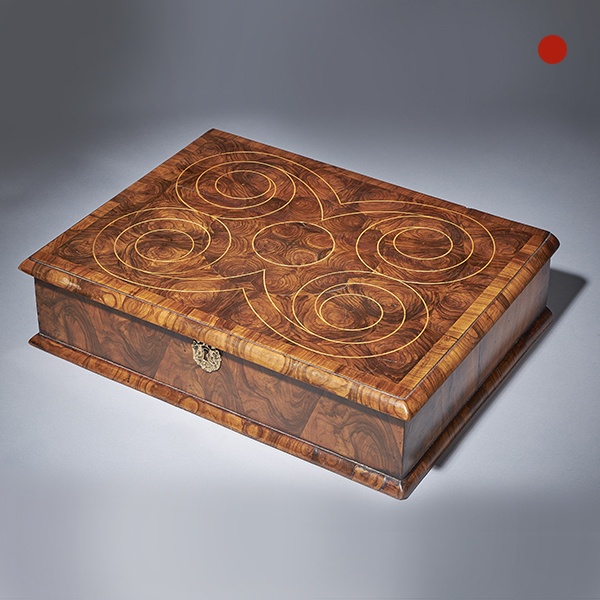
A superb 17th-century olive oyster lace box from the reign of King Charles II, circa 1675-85.
A superb 17th century olive oyster lace box from the reign of King Charles II, circa 1675-85. Geometric patterns adorn the selected and book-matched hand cut olive oysters to the top which is beautifully inlaid with fine boxwood stringing, cross-banded and edged with cross grain mouldings, all in figured olive.
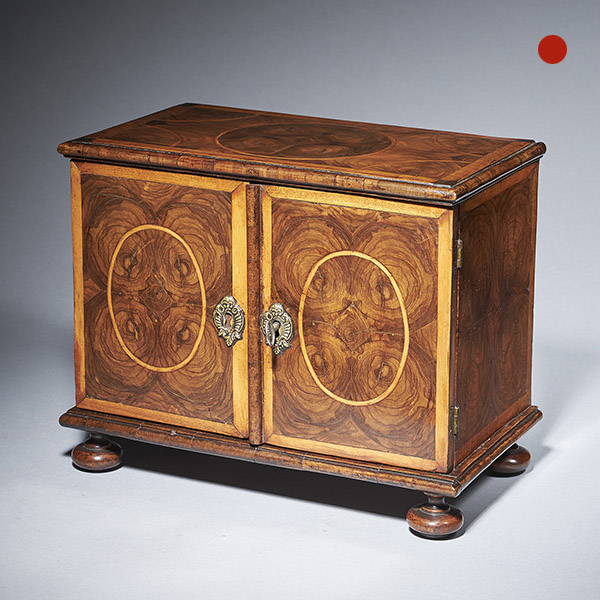
17th-Century miniature table cabinet
The miniature table cabinet opens to an arrangement of drawers, a row of four, a bank of four and a long pen drawer, similarly veneered in oysters of olive.
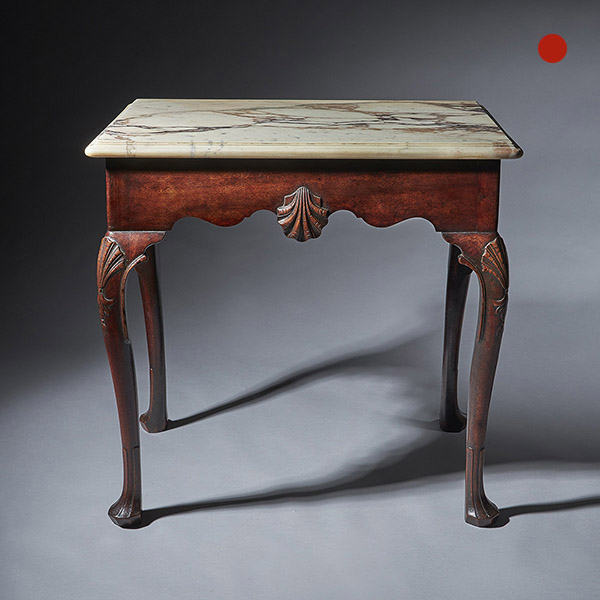
A Delightful Mid 18th Century Irish Mahogany Console Table of Small Proportions (29”) Circa 1750-1760.
A Rare Mid 18th-Century Irish Mahogany Console Table of Small Proportions (29”)
With Moulded Edged Calacatta Rosati Marble.
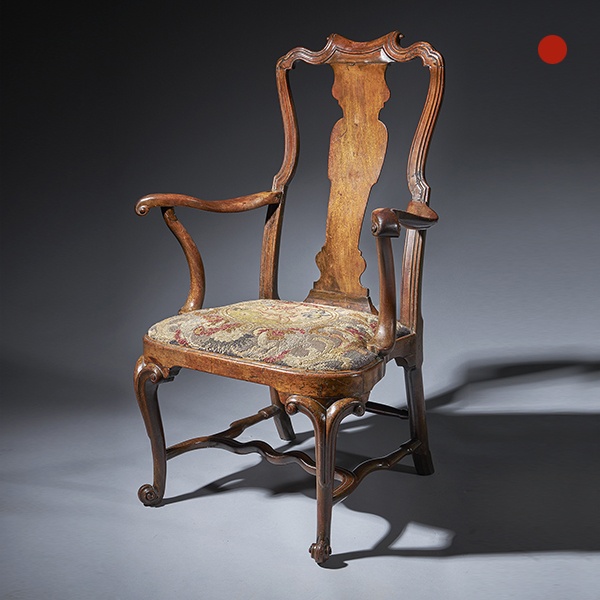
An extraordinary George I walnut armchair Circa 1725, England
An extraordinary George I walnut armchair of fabulous colour, form and patination. The chair is of the most lively shapes being either carved or turned.
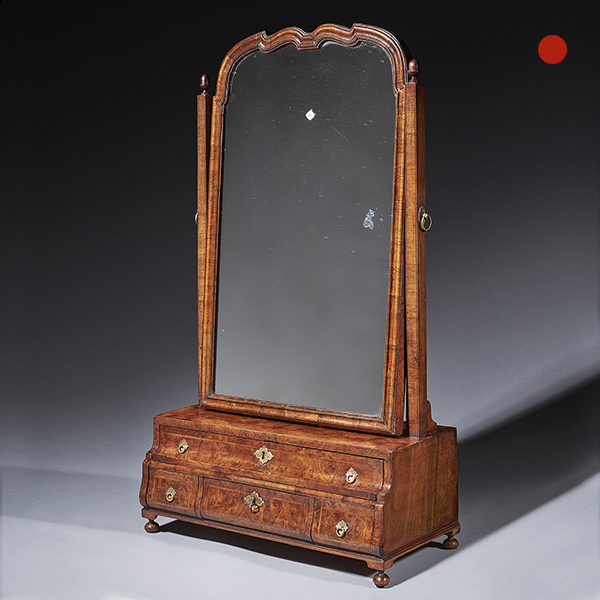
A fine burr walnut George I dressing mirror. Circa 1715-25 England.
A fine burr walnut George I dressing mirror Circa 1715-25 England. SoldFollow UsA fine burr walnut George I antique dressing mirror An extremely rare and fine George I burr walnut dressing mirror raised on ball and bracket feet. The drawer...
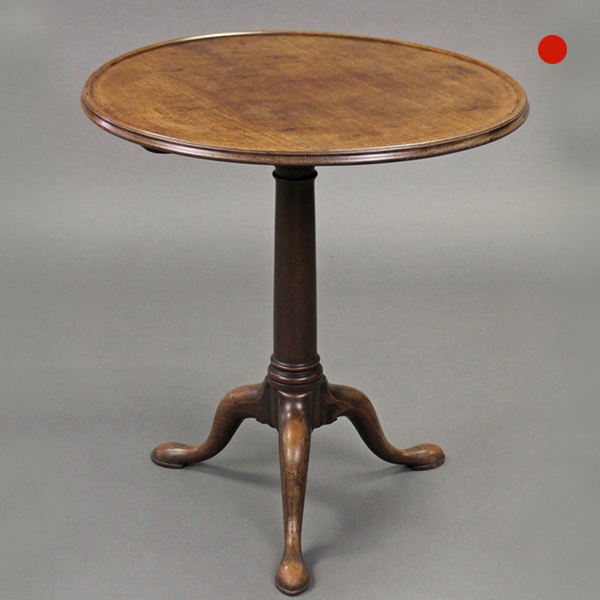
George III Mahogany Gun Barrel Tray Top Tripod Table Sofa Table Chippendale Period
A George III Mahogany Gun Barrel Tray Top Tripod Table, Sofa Table, Chippendale Period, circa 1770-1790, England. The circular tray top with moulded edge is raised on a gun-barrel centre column and cabriole legs with shaped pad feet.

A superb 17th-century olive oyster lace box from the reign of King Charles II, circa 1675-85.
A superb 17th century olive oyster lace box from the reign of King Charles II, circa 1675-85. Geometric patterns adorn the selected and book-matched hand cut olive oysters to the top which is beautifully inlaid with fine boxwood stringing, cross-banded and edged with cross grain mouldings, all in figured olive.

17th-Century miniature table cabinet
The miniature table cabinet opens to an arrangement of drawers, a row of four, a bank of four and a long pen drawer, similarly veneered in oysters of olive.

A Delightful Mid 18th Century Irish Mahogany Console Table of Small Proportions (29”) Circa 1750-1760.
A Rare Mid 18th-Century Irish Mahogany Console Table of Small Proportions (29”)
With Moulded Edged Calacatta Rosati Marble.

An extraordinary George I walnut armchair Circa 1725, England
An extraordinary George I walnut armchair of fabulous colour, form and patination. The chair is of the most lively shapes being either carved or turned.

A fine burr walnut George I dressing mirror. Circa 1715-25 England.
A fine burr walnut George I dressing mirror Circa 1715-25 England. SoldFollow UsA fine burr walnut George I antique dressing mirror An extremely rare and fine George I burr walnut dressing mirror raised on ball and bracket feet. The drawer...

George III Mahogany Gun Barrel Tray Top Tripod Table Sofa Table Chippendale Period
A George III Mahogany Gun Barrel Tray Top Tripod Table, Sofa Table, Chippendale Period, circa 1770-1790, England. The circular tray top with moulded edge is raised on a gun-barrel centre column and cabriole legs with shaped pad feet.
YOU MAY ALSO LIKE
No Results Found
The page you requested could not be found. Try refining your search, or use the navigation above to locate the post.
No Results Found
The page you requested could not be found. Try refining your search, or use the navigation above to locate the post.
